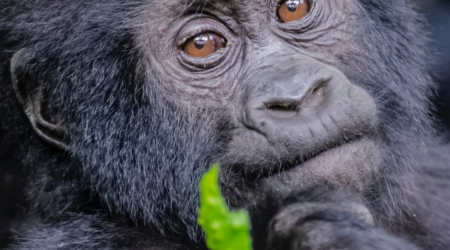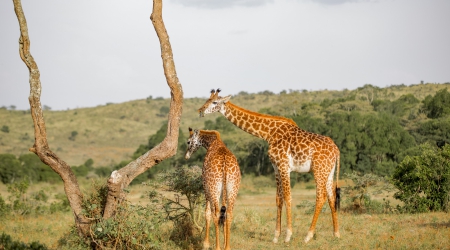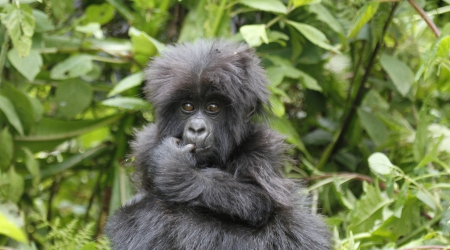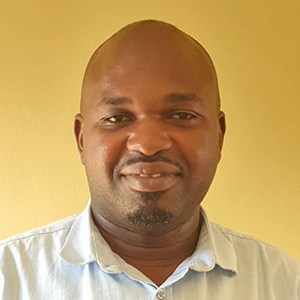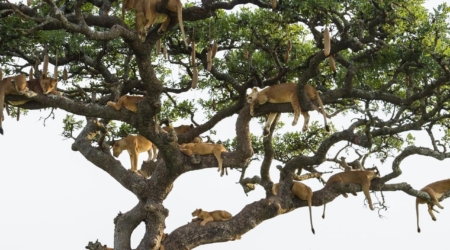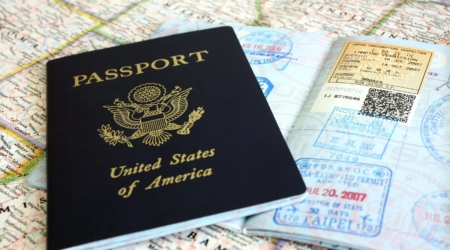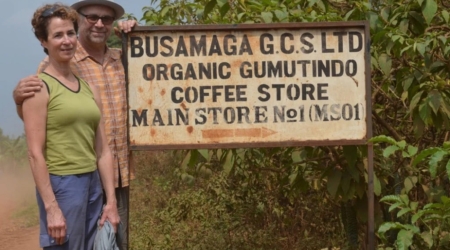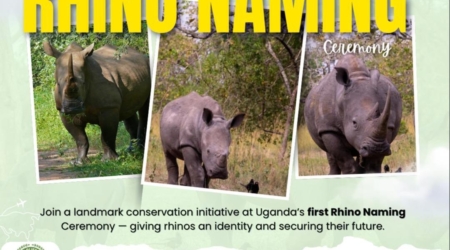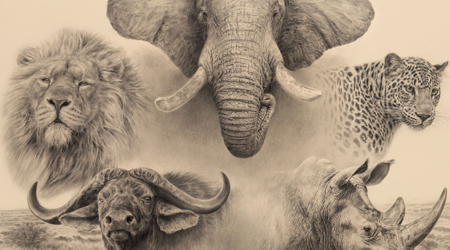Gorilla tourism represents one of Uganda’s most valuable economic and revenue assets. The activity is concentrated in Bwindi Impenetrable National Park and Mgahinga Gorilla National Park, both managed by the Uganda Wildlife Authority.
Permit fees serve as the backbone of revenue. As of 2025, Uganda Wildlife Authority (UWA) offers 160 daily permits across these parks. Each permit grants access to a one-hour trek and is priced at 800 USD for foreign non-residents, 700 USD for foreign residents, and 300,000 UGX for East African citizens.
In 2023, gorilla tourism generated approximately 35 million USD in direct permit sales. Bwindi accounted for over 90 per cent of this revenue, given its larger number of habituated gorilla families. Mgahinga, although smaller, has seen growing numbers since 2021 due to improved road access and marketing.
Besides permit fees, significant revenue is generated from park entry payments, guided services, transportation, and accommodations. Private lodges near Buhoma, Rushaga, Nkuringo, and Ntebeko make significant contributions through taxes and employment, while local supply chains provide agricultural produce, crafts, and construction materials.
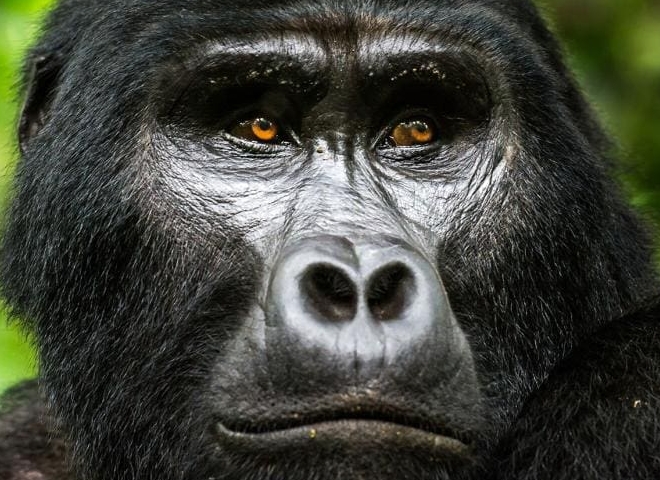
You may ask yourself, Why does this matter to a reader outside Uganda? Because gorilla tourism sets a benchmark for how high-value wildlife experiences can shape national economies. It is both a conservation tool and a development engine, and Uganda has placed it at the core of its tourism policy.
Revenue Sharing Policy
The Uganda Wildlife Authority established the Revenue Sharing Policy in 1994, aligning conservation with community development. The scheme ensures neighbouring populations benefit directly from protected areas.
The mechanism is straightforward. Twenty per cent of park entry fees are disbursed annually to local governments in districts surrounding Bwindi Impenetrable and Mgahinga Gorilla National Parks. Community leaders then allocate funds to development projects approved through district and sub-county planning structures.
In addition, the funds target tangible needs such as education, health facilities, water supply, and small-scale enterprise support. For instance, Kabale and Kisoro districts have implemented borehole construction and school renovations using these allocations. The focus is on projects with measurable benefits rather than one-off cash handouts.
Moreover, the policy is embedded within Uganda’s broader wildlife governance system. The National Wildlife Act of 2019 reaffirmed revenue sharing as a statutory obligation, reflecting the government’s recognition that conservation cannot succeed without community buy-in.
The process is not without its complications. Sometimes funds arrive late, and district-level planning can dilute the immediacy of community needs. But let us be honest, no public finance mechanism is flawless, and this one has at least secured a degree of predictability.
Types of Community Benefits
Infrastructure Development
Infrastructural development remains the most visible outcome of gorilla tourism revenue sharing. In Rubuguri Parish, Kisoro District, the construction of classroom blocks and access roads has improved school attendance and trade logistics. Gravity-flow water systems funded through UWA allocations now serve hundreds of households in Nteko and Nyabaremura, reducing time spent on water collection and improving sanitation. Community members identify these projects during public consultations, and execution is typically overseen by local contractors or sub-county engineers.
Education and Scholarships
Educational initiatives have also gained traction under this scheme. Several schools within the Bwindi buffer zone receive annual support for scholastic materials, roofing repairs, and classroom expansion.
In areas such as Ruhija and Rushaga, UWA-sponsored bursaries have helped vulnerable students complete secondary education. Although small in number, these scholarships carry symbolic value. They reinforce the link between conservation income and future opportunity.
Enterprise and Livelihood Support
You may be wondering whether these benefits extend to everyday livelihoods. The answer is yes. In Nkuringo, community members have formed cooperatives that supply porters, sell agricultural produce to lodges, and manage souvenir outlets.
UWA supports such ventures through training in financial literacy and enterprise management. Moreover, in Kisoro and Kanungu districts, local groups have received start-up capital to launch beekeeping and poultry projects aimed at improving household income.
Health Services and Medical Infrastructure
In the health sector, gorilla permit revenue has financed the construction of maternity wards, the purchase of medical beds, and the delivery of ambulance services. The Health Centre III in Nyundo now operates a solar-powered refrigeration system for storing vaccines, made possible through community project funds.
Clinics in remote areas like Mpungu and Nyakabande report increased patient visits since implementing basic facility upgrades. These outcomes highlight how tourism revenue can extend into primary care delivery.
READ ALSO: Do you need Travel Insurance to go Gorilla Trekking?
Conservation Incentives for Communities
Gorilla tourism aligns community welfare with wildlife protection by providing direct economic and social returns for conservation. Revenue creates incentives that shape daily decisions around forest use.
One clear example is the decline in poaching near Bwindi and Mgahinga. Households that benefit from tourism revenue, whether through school projects or employment, have less motivation to engage in illegal hunting. Village leaders now play a role in monitoring park boundaries and reporting intrusions.
In addition, conservation groups have introduced reforestation projects, often supported with gorilla tourism funds. Community members plant indigenous trees along buffer zones to restore degraded areas and secure water catchments. These activities not only protect gorilla habitats but also improve agricultural productivity.
You can see how the logic works: when families perceive gorillas as a source of income, they protect the resource. A porter who earns through treks or a farmer who sells food to lodges has every reason to support park management.
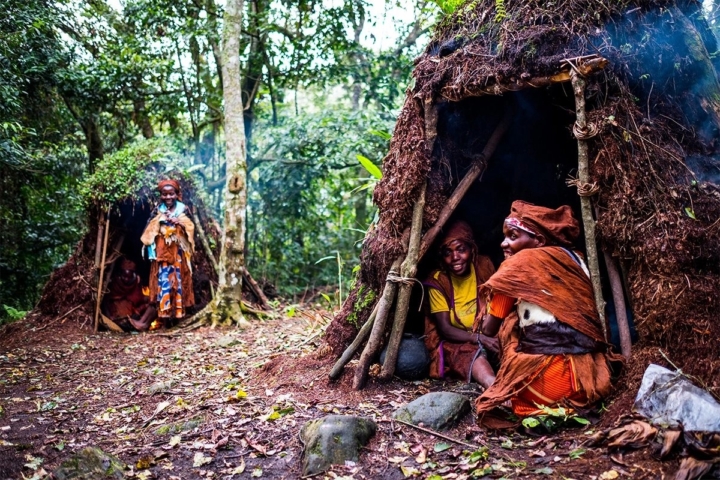
Moreover, women’s groups involved in craft enterprises often dedicate a portion of their earnings to conservation education in schools. These programs cultivate awareness among younger generations about the ecological significance of mountain gorillas and the forests they inhabit.
On top of that, conservation-linked tourism has encouraged alternative livelihoods such as beekeeping and mushroom farming. These reduce dependence on firewood collection inside protected areas, further strengthening the community–conservation bond.
As a result, gorilla tourism revenue serves as a unifying mechanism where community development and biodiversity protection advance together under a shared framework of mutual benefit.
Challenges and Gaps
A strong revenue-sharing policy can still face operational barriers. Acknowledging these gaps clarifies where improvements are necessary for long-term sustainability.
Delayed Disbursement
Funds often reach districts months after collection. This timing weakens project planning, since local governments cannot synchronise allocations with community development cycles.
Equity of Distribution
Communities closest to Bwindi and Mgahinga benefit most. Outlying villages, though still restricted by conservation rules, sometimes see fewer projects.
Permit Pricing Pressures
Gorilla trekking permits remain Uganda’s premium product at 700 US dollars for foreign non-residents. While sustaining national income, these costs can suppress demand during economic downturns. East African discounts exist, yet uptake remains limited.
Accountability Mechanisms
Project selection does not always involve thorough consultation. This can create perceptions of exclusion, with residents feeling decisions are shaped by external actors rather than local priorities.
Administrative Bottlenecks
Bureaucratic processes at the district level complicate fund flow. On top of that, limited technical capacity can stall implementation, leading to incomplete or delayed community projects.
Future Outlook
Looking ahead, gorilla tourism revenue in Uganda is positioned for refinement rather than reinvention.
Stakeholders increasingly stress community participation, transparency, and diversification as the foundations for growth. Government and conservation partners are expanding frameworks that allow local cooperatives to take larger stakes in lodges and service enterprises, ensuring communities move from beneficiaries to stakeholders.
This approach ties revenue directly to ownership, which strengthens both trust and accountability.
In addition, technology is beginning to shape the system. Pilot projects explore digital platforms that track disbursement and project spending in real time. For you as a reader, picture the reassurance that comes from seeing a school renovation or borehole installation recorded and verified online. Such visibility improves governance while maintaining donor and visitor confidence.
Another area of focus is product diversification. Bwindi and Mgahinga already host gorilla trekking, yet new offerings such as forest hikes, birdwatching routes, and cultural experiences are being nurtured to reduce pressure on gorilla groups.
These additions extend visitor stays and spread income more evenly across communities.
On top of that, regional cooperation with Rwanda and the Democratic Republic of Congo is gaining traction. Joint initiatives aim to harmonise pricing structures, conservation policies, and marketing campaigns.
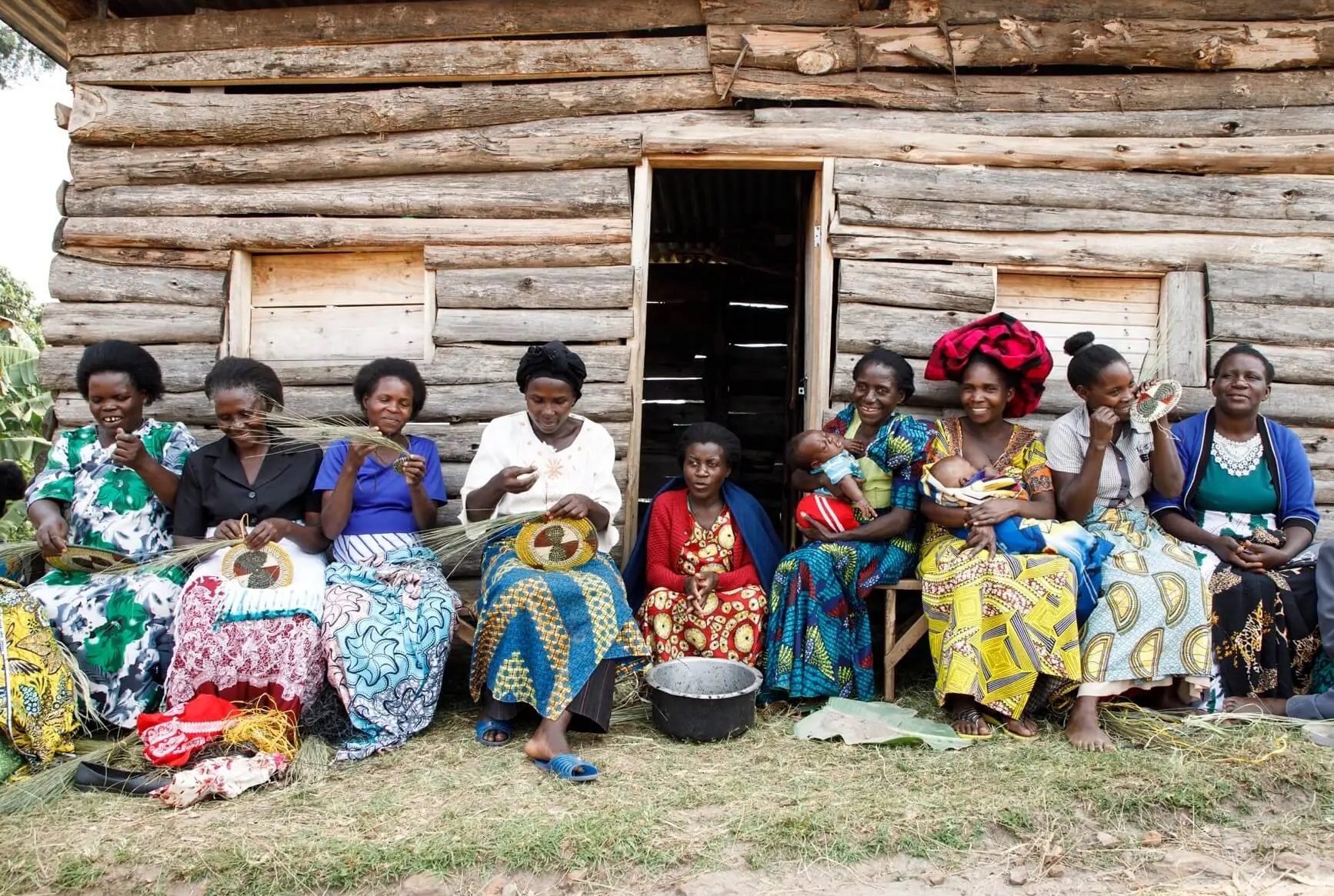
If these alignments hold, they could stabilise revenues and attract broader markets that view the gorilla range as a unified destination.
The future, therefore, depends on how effectively Uganda integrates local ownership, digital transparency, product diversification, and regional coordination. Each element reinforces the others, pointing toward a tourism economy that sustains both communities and conservation.
Conclusion
Gorilla tourism revenue in Uganda stands as a practical demonstration of how conservation can anchor community development. Income generated from trekking permits and related services circulates through schools, health centres, clean water projects, and cooperative enterprises. Each allocation reinforces the idea that wildlife protection and rural welfare are interdependent.
The system’s strength lies in its visibility. A classroom built in Kanungu or a borehole in Rubuguri shows communities that conservation yields tangible returns. Such outcomes sustain trust, reduce pressure on protected areas, and secure support for future protection of mountain gorillas.
Sustaining this alignment requires vigilance. Transparent governance, broader participation, and diversified tourism offerings will determine how well revenue continues to drive both conservation and community prosperity. The outlook is therefore less about expanding numbers and more about refining systems that already prove effective.







